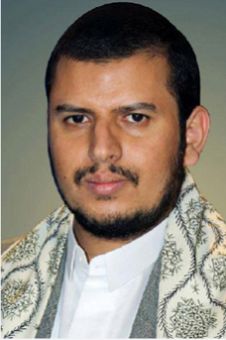Abdul-Malik Al-Houthi is the current leader of the Houthi political, religious and militant movement, which is a major political player in Yemen and the region.
Birth: 22 May 1979 (Age: 45)
Source of Influence: Political
Influence: Political
School of Thought: Shi‘a, Traditional Shi‘a
Status: Featured in current year
Abdul-Malik Al-Houthi is the current leader of the Houthi political, religious and militant movement, which is a major political player in Yemen and the region.
Houthi: The Houthi movement was established in 1992 by Hussein Badr Al-Din Al-Houthi, a Zaydi Shia scholar and anti-Wahhabi who wrote a number of books criticizing Wahhabism and the leading authorities of Yemen. The Zaidis ruled most of Yemen for over 1,000 years until 1962. They believe that Muslims should be ruled only by a descendant of the Prophet Muhammad , whom they call an Imam.
Leader: Abdul-Malik has made major changes in Yemen through tactical and strategic plans that have enabled him to reach the position where he is today. In 2007, he founded the Al-Minbar website and in 2012 he launched Al-Masirah TV channel.
Taking Yemen: Abdul-Malik emerged as a leader after the February 2011 uprising. The Houthi authority seized control over Saada and Jawf provinces in March 2011. Then in 2014, the Houthis seized control over the Demag region in Saada and Amran provinces and in September 2014 they stormed the capital Sana’a, seizing a large number of ministries and military facilities. He has driven Al-Qaeda out of the regions which the Houthis have taken.
Humanitarian Toll: Since 2015, they have been subject to aerial bombing by a Saudi-led coalition. This bombing of one of the world’s poorest countries has led to over 150,000 fatalities and a humanitarian crisis claiming over 200,000 deaths as well as leaving around 70% of the population (27 million) reliant on humanitarian aid and over a million people infected by cholera. The UK in particular has come under international criticism for its supply of weapons which were used in the bombardment.



